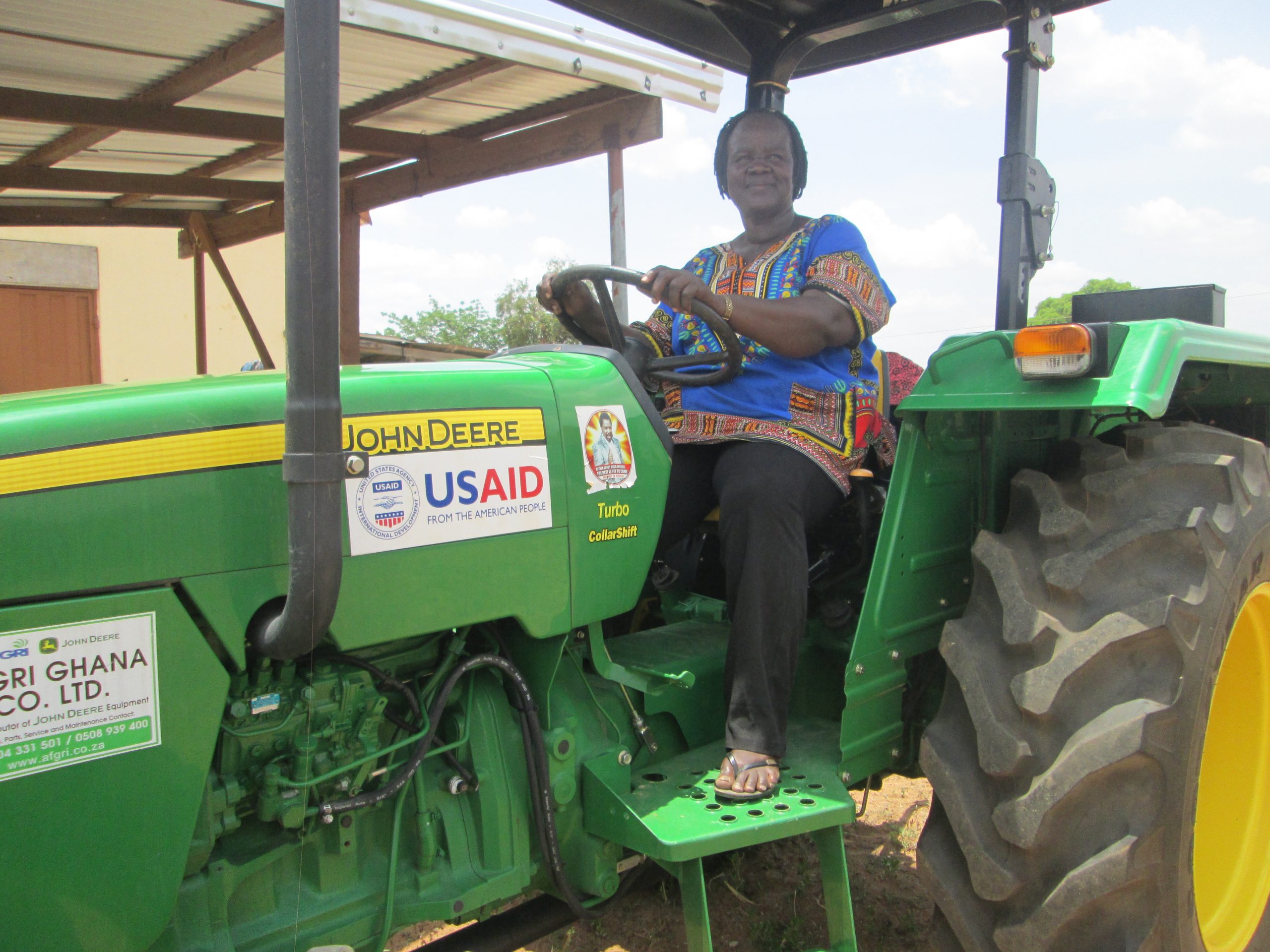
Project Empowers Women as It Connects Farmers with Markets, Equipment
As part of its efforts to improve the competitiveness of the maize, rice, and soybean value chains in northern Ghana, the USAID-funded Agricultural Development and Value Chain Enhancement (ADVANCE) II project provides project participants with matching grants to purchase farm equipment. Through the grant program, participants pay 30 percent of the equipment cost while ADVANCE II pays the remaining 70 percent.
Mostly men, however, access the matching grant scheme to purchase equipment such as power tillers, rotary weeders, donkey carts, reapers, tractors, and warehouses. In the community at large, men are traditionally the owners of such equipment. Given this, the project is especially proud of 58-year-old Mary Anabila, a project aggregator who raised GHC40,000 ($10,152) in July 2015 as the 30 percent leverage she needed to acquire a tractor. It is a great personal achievement for Mary and a positive step toward women’s empowerment for the project.
Usually, grantees pay their part of the leverage by accessing credit from financial institutions; Mary paid the leverage from profits she made from her aggregation business. She says she “decided to get a tractor to help provide timely ploughing for the smallholder farmers from whom I buy maize. When they get their fields ploughed early enough, they will be able to plant at the right time so that I can buy from them at the right time. The timely ploughing service can even let them increase their acreage so that I can get more grains to buy.”
Mary buys maize from 430 smallholder farmers (258 females, 172 males). She started working with ADVANCE in 2011 during the project’s first phase. “ADVANCE has opened my eyes to become more business minded. Now I know how to manage my business better. I am a widow but I can afford to buy anything I want to support my family. I advise all women to be hardworking in whatever they do so that they will become great in future,” remarks Mary.
As part of the project’s gender strategy, ADVANCE II is mainstreaming gender equity at all project levels. It continues to pursue equitable access to resources and works to ensure that women smallholder farmers especially increase their productivity and improve the well-being of their families. Mary is an outstanding example of this effort.








